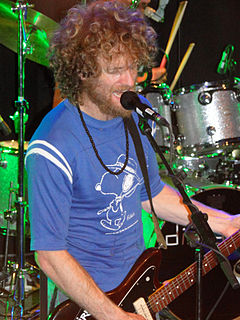A Quote by Howard Gardner
Part of the maturity of the sciences is an appreciation of which questions are best left to other disciplinary approaches.
Quote Topics
Related Quotes
I think of myself as a social scientist. In order to get hired and to get promoted, we're forced to declare a disciplinary and sub-disciplinary specialty, so I am a psychologist and I am a social psychologist within that. But I think the exciting thing is to think about the social sciences in general and the nature of society. It's one of the hardest things to think about, because our brains aren't designed to think about these emergent entities. We're not good at it.
I feel very strongly that I am under the influence of things or questions which were left incomplete and unanswered by my parents and grandparents and more distant ancestors. It often seems as if there were an impersonal karma within a family which is passed on from parents to children. It has always seemed to me that I had to answer questions which fate had posed to my forefathers, and which had not yet been answered, or as if I had to complete, or perhaps continue, things which previous ages had left unfinished.
[The notion of equilibrium] is a notion which can be employed usefully in varying degrees of looseness. It is an absolutely indispensable part of the toolbag of the economist and one which he can often contribute usefully to other sciences which are occasionally apt to get lost in the trackless exfoliations of purely dynamic systems.
Those who wish to change the world should have the best possible understanding of the world, including what is revealed by the sciences, some of which they might be able to use for their purposes. That's why workers education, including science and mathematics, has commonly been a concern of left intellectuals.
The changes that we can make in the culture can be there for people that we will never meet, that will never know us, and that's what keeps me up at night. It's what excites me about science, that we can learn ways of being with each other. And the behavioral sciences have not been enough of a part of cultural development. The physical sciences have; the behavioral sciences have not. And I would like to see if we can bring some things into human culture that would humanize and soften and empower people.


































